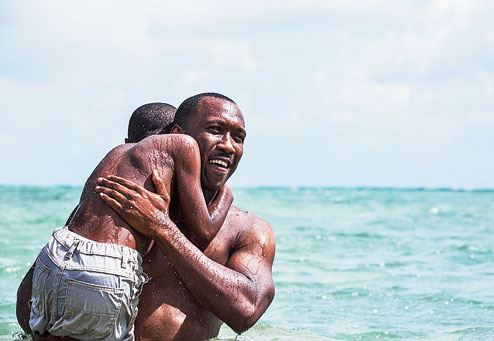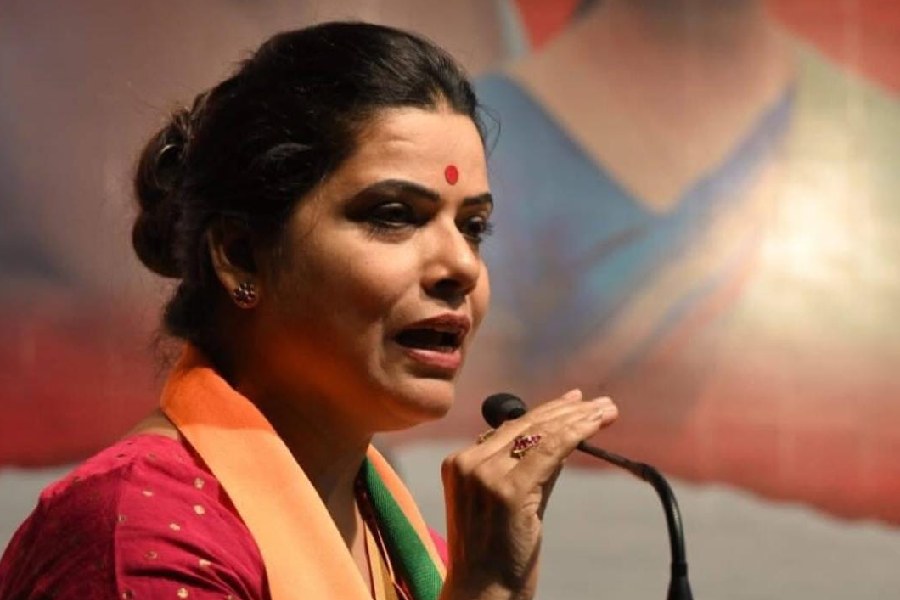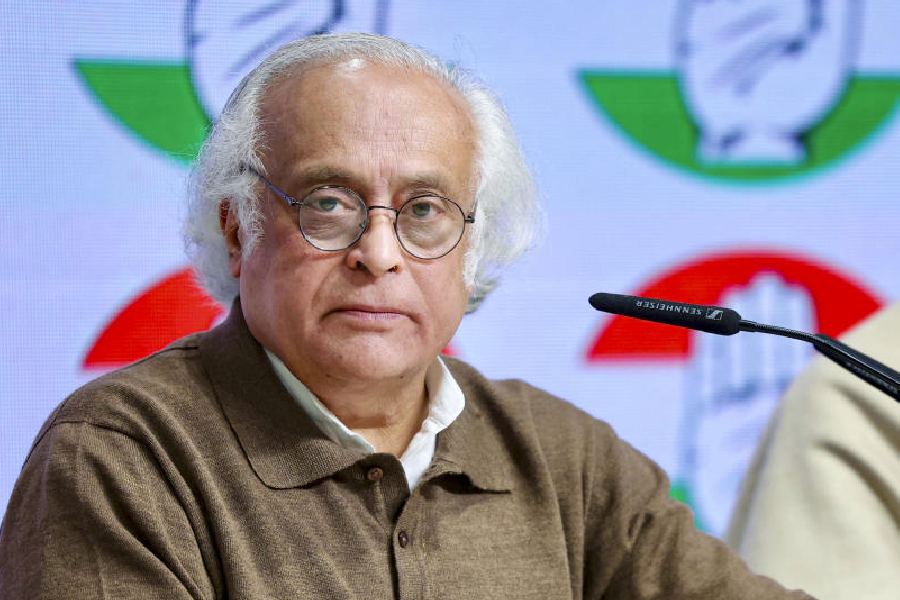
Juan, the black, brawny drug dealer in Liberty City, Miami, tells a lonesome black boy Chiron, “Black boys look blue in the moonlight.”
A teenage Chiron and his schoolmate Kevin smoke up on the beach to fondle and kiss in the moonlight.
An adult Chiron, now a tough, muscular drug dealer himself, meets up with Kevin who now is a waiter in a diner. Kevin is married with a son. The macho drug dealer confesses that he has never loved anyone else since their encounter on the beach.
Eight years after Medicine For Melancholy, director Barry Jenkins is back with the all-black, extremely low budget stunner of a film that seduces you with its sheer honesty and magical melancholy.
Who are you, man?
Moonlight, this year’s Oscar winner of Best Picture, based on Tarell Alvin McCraney’s story In Moonlight, Black Boys Look Blue, is a sultry, yet breathtakingly beautiful film that makes you want to stay with for a long time. It does to you what Yasujiro Ozu’s Tokyo Story or Satyajit Ray’s Pather Panchali did. Only this time the 37-year-old filmmaker makes you question: “Who are you, man?”
It has made me cry my heart out in an almost empty Inox in Quest mall. Made me bow to cinema again. Because of the sheer austerity of style and immense complexity of emotions. Moonlight forces you to relook at identity, sexuality, family and above all masculinity.

Expect the unexpected
Little Chiron, played by newcomer Alex Hibbert, could not have been more haunting. He lives in public housing with his single mother (Naomie Harris) who is on a drug binge to fight the wrath of the brutal world. Chiron gets away to an unfamiliar world of a caring drug dealer, Juan. Thirty minutes into the film Chiron asks Juan what is a faggot. You expect the tough black face to rattle away at the unjust world. But director Jenkins chooses to keep the fear and cut the melodrama. He lets us just sit still and watch the glorious black face explode with kindness. “A word used to make gay people feel bad,” says Juan after a long pause.
Masterful imagery and lyrical passion
Jenkins seems to be deeply influenced by the Thai master Apichatpong Weerasethakul or perhaps Claire Denis. Moonlight is a marriage of masterful imagery and lyrical passion. Despite the gloomy subject Jenkins prevents us from drowning in despair.
Mahershala Ali’s Juan attacks all our Hollywoody expectations. Rather than training Chiron to run drugs or how to fight the predators of the bitter, black world, this black drug dealer teaches Chiron to swim and tells him sexuality is nothing to be ashamed of. Holding little Chiron in the ocean, he teaches him that letting go comes with only trust.
Jenkins does not wack you by showing the crushing loneliness of a gay man in a culture where being queer is seen as weakness. We only see the scars within Chiron as he grows up from a withdrawn, stubborn child to a gawky, ashamed teenager played brilliantly by Ashton Sanders. In a single circular hand-held shot, a helpless Kevin is forced to hit Chiron by the black bullies of the high school. Chiron keeps getting up to be punched again and again… Jenkins elevates us by flooding us with a deep sense of tolerance that hurts. Chiron returns the next day to school to beat up the bully and gets arrested.
A macho drug dealer with a trapped soul
The third act finds Chiron grown up to be a more macho drug dealer than Juan, played with incredible nuance by Trevante Rhodes. He is hugely muscular, with gold-plated teeth guard, a pistol and a big car. He has done everything to rid himself of all physical traces of being queer, but Rhodes’s sad eyes and hardly any lines which he takes a long time to mumble, reveals his trapped soul.
In a Tom Twyker-ish style of fractured narrative, Jenkins conjures up a fluid picture. The background score swells and lulls like an ocean, giving us the experience of a wet dream.
Just be an honest man
James Laxton’s cinematography paints the screen not only with gritty neorealist tones but also the rich saturated colours of an expressionist painting. The extremely harsh environment is shot with exquisite beauty. The sun-burnt days. The neon Miami nights. The huge close-ups through anamorphic lens make the soulful faces so beautifully intimate. Be it prowling around the uncanny streets, or watching a quiet moment in the car, or swirling around the adult Chiron embracing his addicted mother in the rehab… Laxton’s hand-held photography is an extremely mature salute to Christopher Doyle’s work in Wong Kar-wai’s Happy Together. Only this time Jenkins refuses to be indulgent.
Every shot, every performance, every piece of music, every bit of lived-in production design makes this film a rare one that never ever takes a wrong step on the journey to a climax which is one of the best dialogue scenes I have seen in years.
Naomie Harris is outstanding as the young irate, lost and finally defeated mother. Mahershala Ali as Juan unquestionably deserves the Oscar he fetched for the Best Supporting Role. Trevante Rhodes reminded me of Montgomery Clift.
Barry Jenkins doesn’t try at all to attract or entice you by trying to be pretty. Neither does he make any attempt whatsoever to defend or justify the queer. The film simply accepts it. Jenkins simply works hard to focus on the honesty of emotions. As hard as he worked himself up from being a volunteer at the Telluride Film Festival to an Oscar nominee.
Moonlight proves that you do not have to go out of your way to be sympathetic to the queer cause. You simply have to be an honest man. I doubt I will get to see a better film than Moonlight this year.










